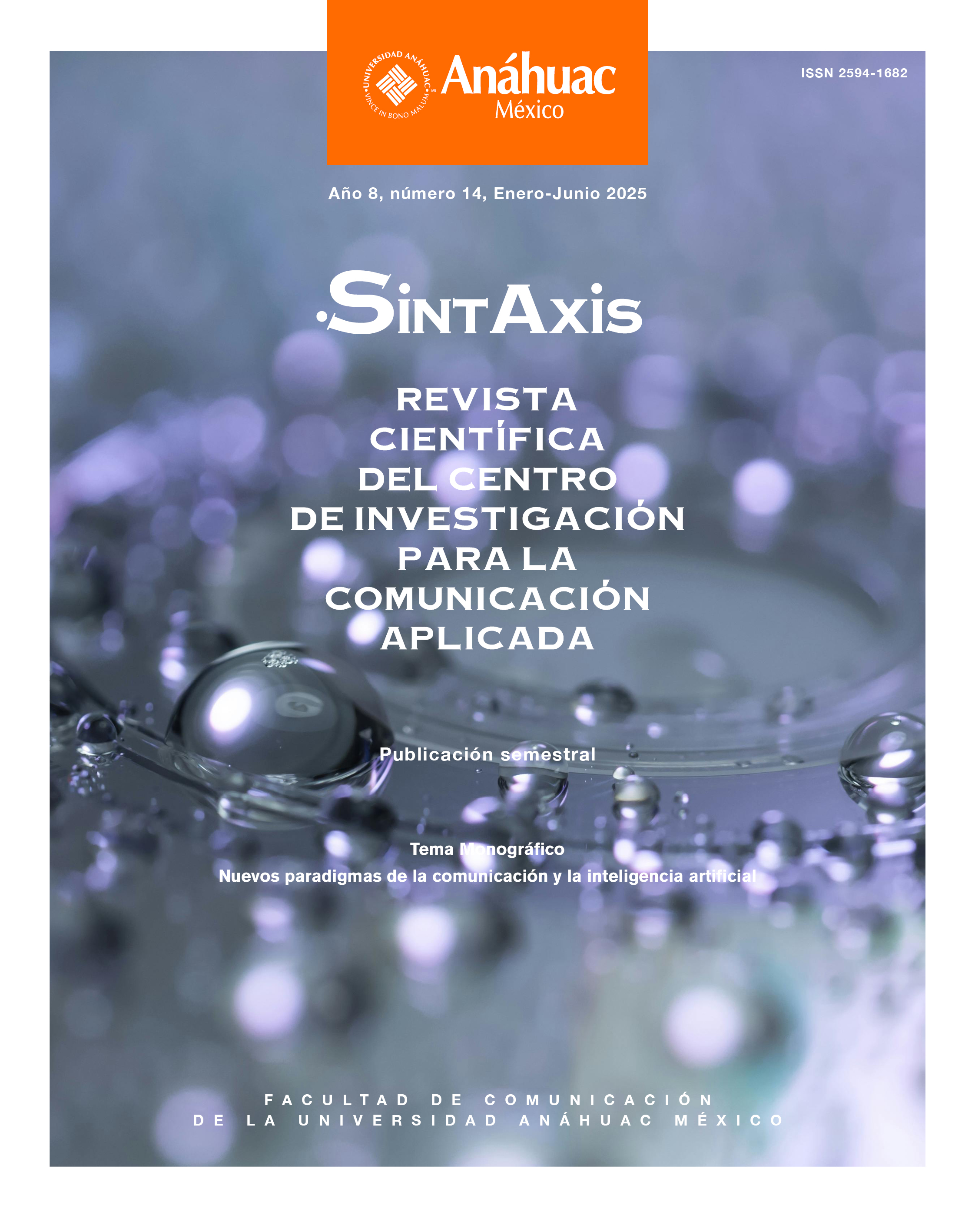Ethical and legal challenges in the use of Artificial Intelligence (AI)
Main Article Content
Abstract
This article explores the significant advances in artificial intelligence (AI) and its growing importance in various areas of human life, such as healthcare, education, and industry. It analyses how AI has transformed processes, improving efficiency and decision-making. However, it also addresses the ethical and legal implications that arise with its use, such as privacy, liability, and algorithmic bias. Through a theoretical discussion, the article invites reflection on the challenges presented by the implementation of AI, emphasizing the need to establish adequate regulatory frameworks that protect individuals and society at large.
Downloads
PLUMX Metrics
Article Details

This work is licensed under a Creative Commons Attribution-NonCommercial-NoDerivatives 4.0 International License.
The author keeps the property rights with no restriction whatsoever and guarantees the magazine the right to be the first publication of the work. The author is free to deposit the published version in any other medium, such as an institutional archive or on his own website.
References
Abeliuk, A, & Gutiérrez, C. (2021). Historia y evolución de la Inteligencia Artificial. Revista
Bits de Ciencia, 2021. 1-20. https://jfborges.wordpress.com/2024/01/26/historia-y-evolucion-de-la-inteligencia-artificial/
Byung-Chul Han. (2012). La sociedad del cansancio. Herder.
Cáceres, E. (2023). La Inteligencia Artificial aplicada al derecho como una nueva rama de la teoría jurídica. Universidad de Granada, acfs, 57, 63-89
Corvalán, J. G. (2018). Inteligencia artificial: retos, desafíos y oportunidades - Prometea: la primera inteligencia artificial de Latinoamérica al servicio de la Justicia. Revista de Investigaciones Constitucionales, 295-316 .
Cairó, O. (2011). El Hombre Artificial. El futuro de la tecnología. Alfaomega.
Dreyfus, H. (1972). What computers can not do of artificial reason. Harper&Row Publishers.
García, V. (2021). Este ha sido el estado de la Inteligencia Artificial en 2020. Revista BYTÉ, https://revistabyte.es/actualidad-it/estado-de-la-inteligencia-artificial-en-2020/
García, C. (2012). Principios para la Era Cognitiva. Jornadas Yo, Robot: puestos de trabajo que van a desaparecer. ESIC.
Jersain, L.C. (2022). Enfoques regulatorios para la inteligencia artificial Revista chilena de derecho. 49(3). https://www.scielo.cl/scielo.php?script=sci_arttext&pid=S0718-34372022000300003
Kaplan, J. (2017). Inteligencia Artificial. Todo lo que mundo debe saber. Teell Editorial.
Kurzweil, R. (1992). La era de las máquinas inteligentes. Cambridge, MA: MIT Press
Lafuerte, V. (2018). El cambio de paradigma tecnoeconómico y los nuevos escenarios profesionales. Crisis de los derechos laborales y nuevos riesgos emergentes. Acciones e Investigaciones Sociales. 38, 11-36.
Linares, J. (2008). Ética y mundo tecnológico. Fondo de Cultura Económico.
Minsky, M. (1990). Un marco para la representación del conocimiento. HP Winston (ed.).
McCarthy, J. (2007). What is Artificial Intelligence? Stanford University, Computer Science Department. EEUU. https://www-formal.stanford.edu/jmc/whatisai.pdf
Nilson, N. I. (2000) Inteligencia Artificial. Una nueva síntesis. Madrid: McGraw Hill.
Pieczynski, F. (2018, 24, diciembre). EXPANSIÓN, Economía Digital. https://www.expansion.com/economia-digital.html
Russell, S. & Norvig, P. (2003) Inteligencia artificial: un enfoque moderno. (2ª ed.). Prentice Hall.
Shirai, Y. & Tsujii, J. (1982) Inteligencia Artificial: Conceptos, técnicas y aplicaciones. Ariel.
Terrones, L. (2018). Inteligencia artificial y ética de la responsabilidad. Cuestiones de Filosofía. 4(22), 141-170. https://philarchive.org/archive/DEDIAY

